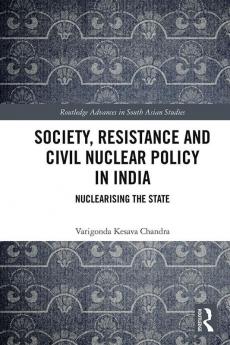English
Hardback
₹11939
₹15262
21.77% OFF
(All inclusive*)
Delivery Options
Please enter pincode to check delivery time.
*COD & Shipping Charges may apply on certain items.
Review final details at checkout.
Looking to place a bulk order? SUBMIT DETAILS
About The Book
Description
Author
<p>This book explores how anti-nuclear social movements impact the state’s civil nuclear policy and its implementation by presenting a historical-comparative case study of anti-nuclear movements in India.</p><p>Drawing on social movement theory and empirical methods the book demonstrates that the ability for anti-nuclear movements to impede the inception of nuclear plants – a key element of India’s civil nuclear policy – is determined by the movement’s collective action repertoires the politicisation of nuclear power and the state’s larger developmental paradigm and the openness of state input structures. The case studies of anti-nuclear movements in Haripur Kudankulam and Kovvada demonstrate how the implementation of civil nuclear policy is also determined by the state’s technical and financial capacity and effective international collaboration.</p><p>With a focus on theorisation of social movements and their impact combined with empirical studies of anti-nuclear movements as well as the historical trajectory of civil nuclear development the book adds a new prism to the study of India’s civil nuclear policy and anti-nuclear opposition. It will be of interest to researchers working on social movements state-society relations energy studies and civil nuclear energy in the context of South Asia and the Global South.</p>
Delivery Options
Please enter pincode to check delivery time.
*COD & Shipping Charges may apply on certain items.
Review final details at checkout.
Details
ISBN 13
9780367561468
Publication Date
-30-11-2020
Pages
-226
Weight
-420 grams
Dimensions
-156x234x13.61 mm











